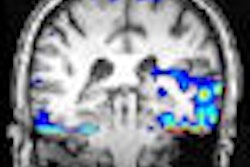With the help of magnetoencephalography (MEG), researchers have found that children born with a DNA abnormality on chromosome 16 show measurable delays in processing sound and language.
The findings, published online February 11 in Cerebral Cortex, could help the development of medical treatments for specific subtypes of autism, as well as cognitive and language disabilities.
Senior author Timothy P.L. Roberts, PhD, from Children's Hospital of Philadelphia, and colleagues examined children with either deletions or duplications of DNA at a specific genetic site, known as 16p11.2. Previous research indicates that this location on chromosome 16 is associated with autism spectrum disorders (ASDs), language impairments, and developmental delays.
The study included 115 children: 43 subjects with the 16p11.2 deletion, 23 subjects with the 16p11.2 duplication, and 49 healthy controls. Eleven of the 43 children with the deletion had been diagnosed with ASDs, along with two of the 23 children with the duplication.
Each child heard a series of tones, and Roberts and colleagues used MEG to analyze changing magnetic fields in the brain, measuring an auditory processing delay known as the M100 response latency.
In children with the deletion, the researchers found a significant delay of 23 msec. No delay was detected among children with the duplication, who actually had a slight tendency to process sounds faster than the control subjects.
Roberts expects future studies will investigate other genes previously implicated in ASDs and other psychiatric disorders to determine whether they also involve M100 response delays.



















